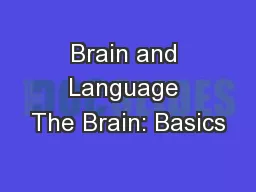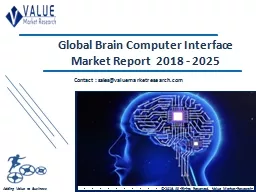PPT-The Hijacked Brain
Author : myesha-ticknor | Published Date : 2017-08-10
Addiction and the Brain Bob Wolford Vermont Law School November 13 2015 Fun facts about Neurons Here are some interesting statistics about neurons in humans and
Presentation Embed Code
Download Presentation
Download Presentation The PPT/PDF document "The Hijacked Brain" is the property of its rightful owner. Permission is granted to download and print the materials on this website for personal, non-commercial use only, and to display it on your personal computer provided you do not modify the materials and that you retain all copyright notices contained in the materials. By downloading content from our website, you accept the terms of this agreement.
The Hijacked Brain: Transcript
Download Rules Of Document
"The Hijacked Brain"The content belongs to its owner. You may download and print it for personal use, without modification, and keep all copyright notices. By downloading, you agree to these terms.
Related Documents














![[EBOOK]-Against the Grain: How Agriculture Has Hijacked Civilization](https://thumbs.docslides.com/957323/ebook-against-the-grain-how-agriculture-has-hijacked-civilization.jpg)